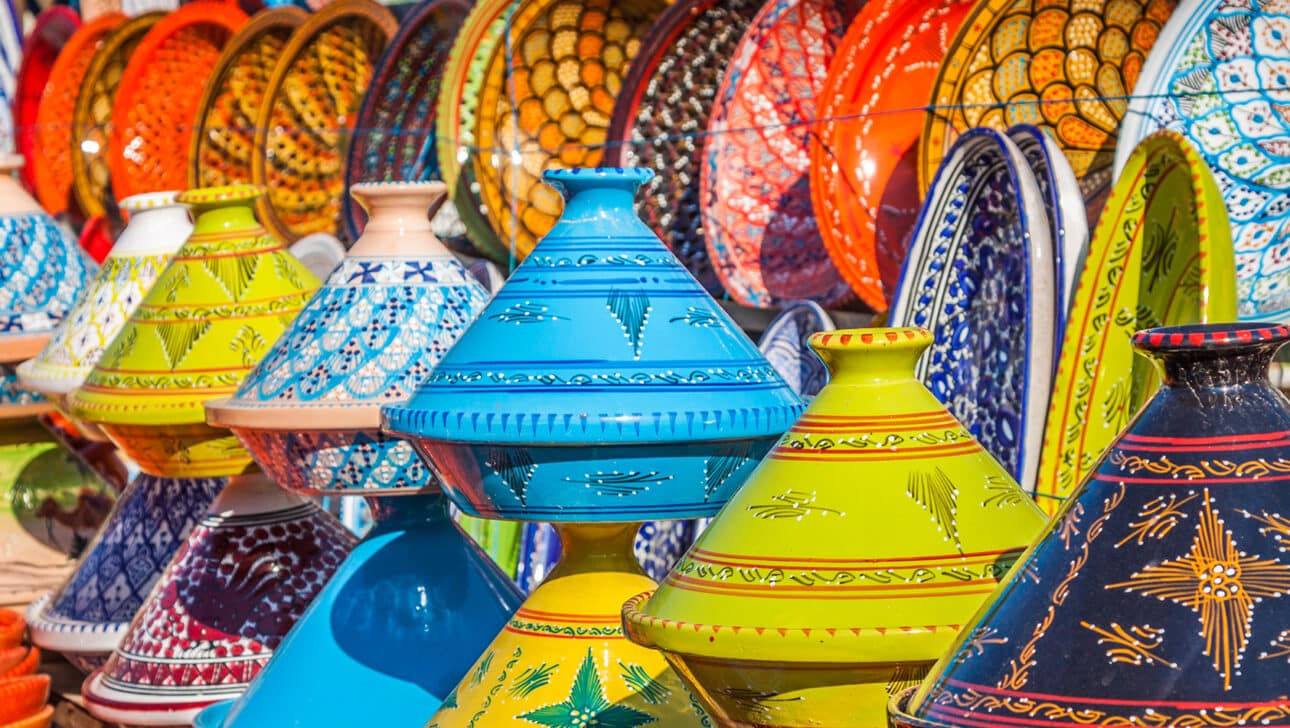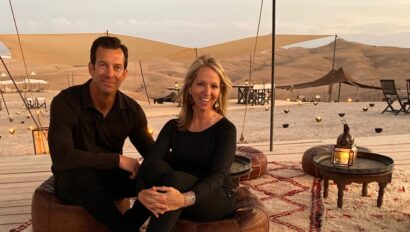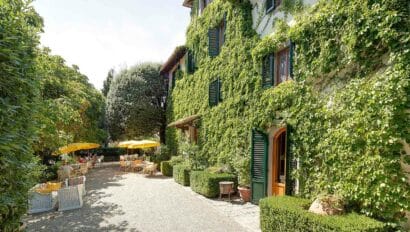The process may feel foreign, but the key is to enjoy it.
“What, do I look like Bill Gates?” That’s one of my standby lines when I engage in the art of haggling with merchants abroad. I feign destitution as I attempt to wriggle the seller down from his astronomical asking price to my practically-nothing counteroffer. Somewhere in between, we both find happiness.
The point, of course, isn’t merely to acquire keepsakes at a great price. It’s to savor the experience. The hunt and the haggling become as memorable as the memento.
On the other hand, I’m not all that good at bargaining. (I cave too early.) On your next foray through a foreign bazaar, you might want to heed the advice of Classic Journeys’ guides who know the drill well.
Ask your guide if it’s acceptable to bargain. Some places have fixed prices, while some have fixed prices that are meant to be whittled down. In others, everything’s negotiable from the get-go.
Don’t start unless you’re serious. “Don’t do it just for the heck of it,” says Vinay from India. It’s bad form to waste the seller’s time if you don’t want the item.
Get the starting price and then aim low. Always ask the merchant to kick off. In India, Vinay says to counter with about half the asking price. In Vietnam, guide Mai advises going even lower — about a third of the starting point. The merchant will drop the price. A good technique at this point, says Mai, is to say you’re going to check another shop. Walk away. If the seller follows you, urges you to come back, you know he’s pliable. “But don’t get stuck on a price,” says Vinay. “Otherwise it’s not fun. There has to be flexibility on both sides.” You’ll soon arrive at a happy medium.
Have fun. “Bargaining is a game even for us as locals,” says Moroccan guide Saida. It’s also social. In Istanbul’s Grand Bazaar, you’re likely to be served tea or coffee before you even get a starting price. “Then they may ask your profession in order to learn your economic status,” says Turkish guide Cemil. “Accordingly, they ask the price.” Adds Vinay: “Bargain not only to drive the price down, but to strike up a conversation.” That’s why I use gambits like my Bill Gates line. Or I’ll whistle, widen my eyes, and act incredulous. “Thirty dinars? That is so very expensive! I’m not a rich man.” That might invite a question about what I do, and I’ll come back with questions about the seller’s life. Is he a craftsman himself? Does he have a family? I not only gain a treasure, I part with a handshake and a photo.
Know when to go easy. When you’re in a remote area where prices are low to begin with, you might not want to push too hard. “Try once to ask the price down,” says Cemil, “but don’t insist.” The money will go directly to the villager, he adds, and “it’s worth it to pay more to the artist if it’s a handmade item.”
Don’t ask your guide to bargain for you. As Mai says, “I have to return to this place. I need to stay friendly with the sellers.” Some guides don’t mind stepping in to translate or to smooth over a misunderstanding, but why make them your surrogate? Reserve the fun for yourself.
Get informed. Whether it’s gemstones in Jaipur, lacquerware in Saigon, a tea set in Morocco, or a carpet in the Grand Bazaar, it helps to recognize quality. Consult your guide. Learn how to parse true art from knockoff stuff. Which raises an issue: Sometimes a guide will take you to a “special shop” that seems more expensive than the local marketplace. If you’re on your own with a local driver, you can be sure that commissions are at stake. Be wary, but open. If you’re with a Classic Journeys guide, you might be smart to buy there. “You don’t have to buy,” says Mai. “But everything will be high quality, made in Vietnam.” And, adds Vinay, you can take it back if necessary. Good luck doing that in a big open marketplace.
Remember, flying back is expensive. “No matter what you pay,” says Vinay, “it’s always cheaper than flying back to get it.” So buy. And have fun doing it. And bargain — because you’re probably not Bill Gates either.
Robert Earle Howells is a Lowell Thomas Travel Journalist of the Year Silver Award winner and has earned four National Magazine Awards for General Excellence at Outside and National Geographic Adventure magazines.
1. It’s not all about money. Ask about the artisan and how an item was made.
2. Freshly dyed fabrics that become the saris sold in India’s markets.
3. Marrakesh is an ideal place to bargain for rugs and textiles.




